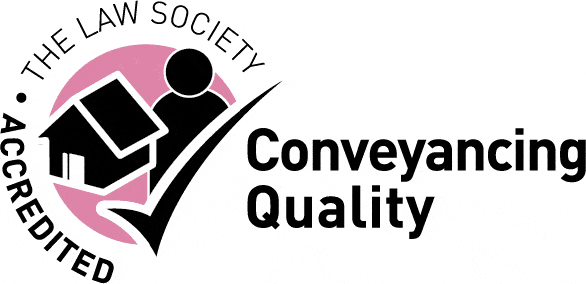Buying a property in Bracknell: Use our convenient checklist to avoid potential setbacks and make the process as hassle-free as possible.
Understand the conveyancing process
It’s important to understand the full conveyancing process for the property that you are buying or the lease you are taking on for a flat. It is typical that the conveyancing process can take months rather than weeks to complete on your conveyancing transaction and move in. By fully understanding and appreciating what to expect, there is less likely that you will panic over any perceived delays.
If you are a first-time buyer our experienced conveyancing solicitors can guide you every step of your property purchase journey. We will always discuss from the outset your preferred moving dates so that we can assess whether or not this is achievable and manage the expectations of all parties involved in the property purchase transaction
What is the Difference Between Freehold and Leasehold?
Freehold and leasehold are both types of housing tenure. Housing tenure refers to the financial arrangements under which someone has the right to live in a house or apartment. The most frequent forms are a tenancy, in which rent is paid to a landlord, and an owner-occupancy. Mixed forms of tenure are also possible.
A freehold property; is a property where the ownership is outright of the property and the land which it stands
A leasehold property is a property where ownership of the property is for a fixed period of time (a lease) and is carved out of a freehold. When the fixed period expires then ownership of the property returns to the freeholder.
The main difference between freehold and leasehold is that freehold ownership gives you complete ownership of the property, including the land it is built on, while leasehold ownership gives you the right to occupy the property for a set period of time.
With freehold, you are the legal owner of the property and the land it is built on. This means that you have the right to do whatever you want with the property, including selling it, renting it out, or making changes to it. You are also responsible for all of the maintenance and repairs to the property.
With leasehold, you are the legal tenant of the property. This means that you have the right to occupy the property for a set period of time, usually 99 years or less. The freeholder is the legal owner of the land and the property, and they are responsible for the maintenance and repairs to the exterior of the property. You are responsible for the maintenance and repairs to the interior of the property.
Here is a table summarizing the key differences between freehold and leasehold:
| Characteristic | Freehold | Leasehold |
|---|---|---|
| Ownership | You own the property and the land it is built on. | You own the property, but not the land it is built on. |
| Term of ownership | Indefinite | Fixed period of time, usually 99 years or less |
| Maintenance and repairs | You are responsible for all maintenance and repairs. | You are responsible for the interior of the property, the freeholder is responsible for the exterior. |
| Selling the property | You can sell the property at any time. | You may need the freeholder’s permission to sell the property. |
| Mortgages | You can get a mortgage on a freehold property. | You may have difficulty getting a mortgage on a leasehold property. |
If you are considering buying a property, it is important to understand the difference between freehold and leasehold. Freehold is generally considered to be the better option, as it gives you more control over the property and you are not subject to the whims of the freeholder. However, leasehold can be a more affordable option, and it may be the only option available in some areas.
Here are some things to consider when deciding whether to buy a freehold or leasehold property:
- The length of the lease. The longer the lease, the more secure your investment.
- The terms of the lease. Make sure you understand all of the terms of the lease, including the rent payments, service charges, and any restrictions on what you can do with the property.
- The condition of the property. Make sure the property is in good condition and that there are no major repairs that need to be done.
- The cost of buying the property. Freehold properties are typically more expensive than leasehold properties.
- The availability of mortgages. Some lenders may not offer mortgages on leasehold properties.
Ultimately, the decision of whether to buy a freehold or leasehold property is a personal one. You need to weigh the pros and cons of each option and decide what is best for you.
We have published a detailed blog on the difference between freehold and leasehold for more information.
Check the lease
It is important to check the period of time that the lease property that you are purchasing. If the time remaining is for less than 50 years for example, it’s worth bearing in mind that you might struggle to get a mortgage for the property purchase.
The reason behind this is that mortgage lenders will want to see that your income will increase over the course of the term of your mortgage agreement. Of course, if you are buying a leasehold property with a short remaining lease, this may be difficult to achieve and therefore some lenders will not be willing to lend on such properties.
Get a structural survey completed
Many property purchasers decide to opt for a mortgage lender valuation survey, with the expectation that it will highlight potential defects. However that is not the case, our advice to all conveyancing purchasers is to instruct a full structural survey so that you are fully aware of what you are buying. It is important that you avoid any potential issues that could lead to maintenance and repair costs associated with the hidden problems.
A typical mortgage lender valuation survey will provide a limited level of information regarding the condition of your home, but this type of survey should not be relied upon as an indication of whether your property has any defects or not. Therefore, if you are planning on buying a property and would like more comprehensive information about its condition, then we recommend that you instruct a full structural survey instead.
It’s important to remember that there are no guarantees when it comes to property surveys, but by paying for one before purchasing your new home, you can minimise the risk of buying something that requires significant work in order to live comfortably in it.
Clear communication with the conveyancing solicitor
This is something that we should be aware of and discuss with you. It is important to know what you are expecting as a tenant or landlord, and we can then make arrangements for this within your contract.
In general terms, if you are a tenant, there may be an expectation that some minor works will be carried out by the landlord, such as changing light bulbs or unblocking sinks or toilets. It is important to consider whether these things are reasonable for you, and if so, include them in your written agreement.
As the landlord, it is important to include any information about fixtures and fittings in your tenancy agreement so that both parties know where they stand when it comes to ownership of these items.
Gazumping Perils
The offer process is the part of the buying and selling process where both parties have agreed to sell their property for a certain price.
The offer process can be the most stressful part of buying or selling a property, especially if there are multiple offers on the table. The seller will want to make sure they get the best price possible for their property, while buyers want to secure a good deal.
When an agreement has been made between the parties involved in buying and selling the property, part of the offer process is for the property to be taken off the market immediately. This should in principal decreases the possibility of the seller getting a higher offer and pulling out before contracts are exchanged.
Understanding your responsibilities
The seller has a duty to disclose any material facts about the property in their possession. If they fail to do so, you may be able to rescind the contract and get your deposit back.
If you’re buying a house or flat and the seller has not disclosed material facts about it, you may be able to pull out of the transaction and get your deposit back. You may also be able to claim compensation if you’ve lost out financially because of the seller’s actions.
If you’re selling a house or flat and don’t disclose material facts about it, this could invalidate the contract and allow your buyer to pull out of the sale. On top of losing their deposit, they may also be able to claim compensation if they’ve lost out financially because of your actions.
In both cases, it’s important that you take legal advice as soon as possible so that we can help protect your interests and make sure there are no further repercussions for either party involved in this situation.
Understanding the property purchase
When you see a property that you like, you can fall in love with it very quickly. We advise that you take a step back and check that understand the commitment you are making. The structural survey will provide assistance in understanding the property condition. However, you do need to get a general fell the surrounding area. It’s a useful idea to visit at different times of the day and night to see if there is any change in noise and traffic levels. Talk to the neighbours.
The biggest reason for house sales falling through is because buyers find out something about the house or area after they have exchanged contracts but before they complete on the purchase. This could be something as minor as a burst pipe but more serious issues such as subsidence or flooding can cause huge problems for both buyers and sellers alike.
The Mortgage
When starting your property purchase journey, it is essential that you have an agreed mortgage in place. This in itself can be a lengthy process which could create delays.
Buildings Insurance
If you are buying an apartment, it is likely that your landlord will require you to take out buildings insurance for your own peace of mind. This gives you protection against fire damage and other perils that may occur to the building. It also protects the landlord if another tenant causes damage. You can choose a policy that includes cover for public liability in case someone sues you or your guests over an accident in the property.
If you are buying a house, then you will need to take out buildings insurance on your home as soon as possible after exchanging contracts. This is because when contracts are exchanged for the property purchase, it is at this point that you are committed to the purchase. The mortgage lender may also require you to take out life assurance at this point and pay for it yourselves rather than have them arrange it for you (which would be much more expensive).
Experienced conveyancing solicitor
As the conveyancing process is long, we advise that you use a solicitor that is experienced. We at Harrison’s Solicitors are an established conveyancing practice with the knowledge and patience to make your property sale or purchase stress-free as possible.
We have a wealth of knowledge when it comes to conveyancing. Contact one of our local offices today for more information:
If you are looking for Conveyancing Solicitors in Bracknell and surrounding areas, contact Harrisons Solicitors today!

